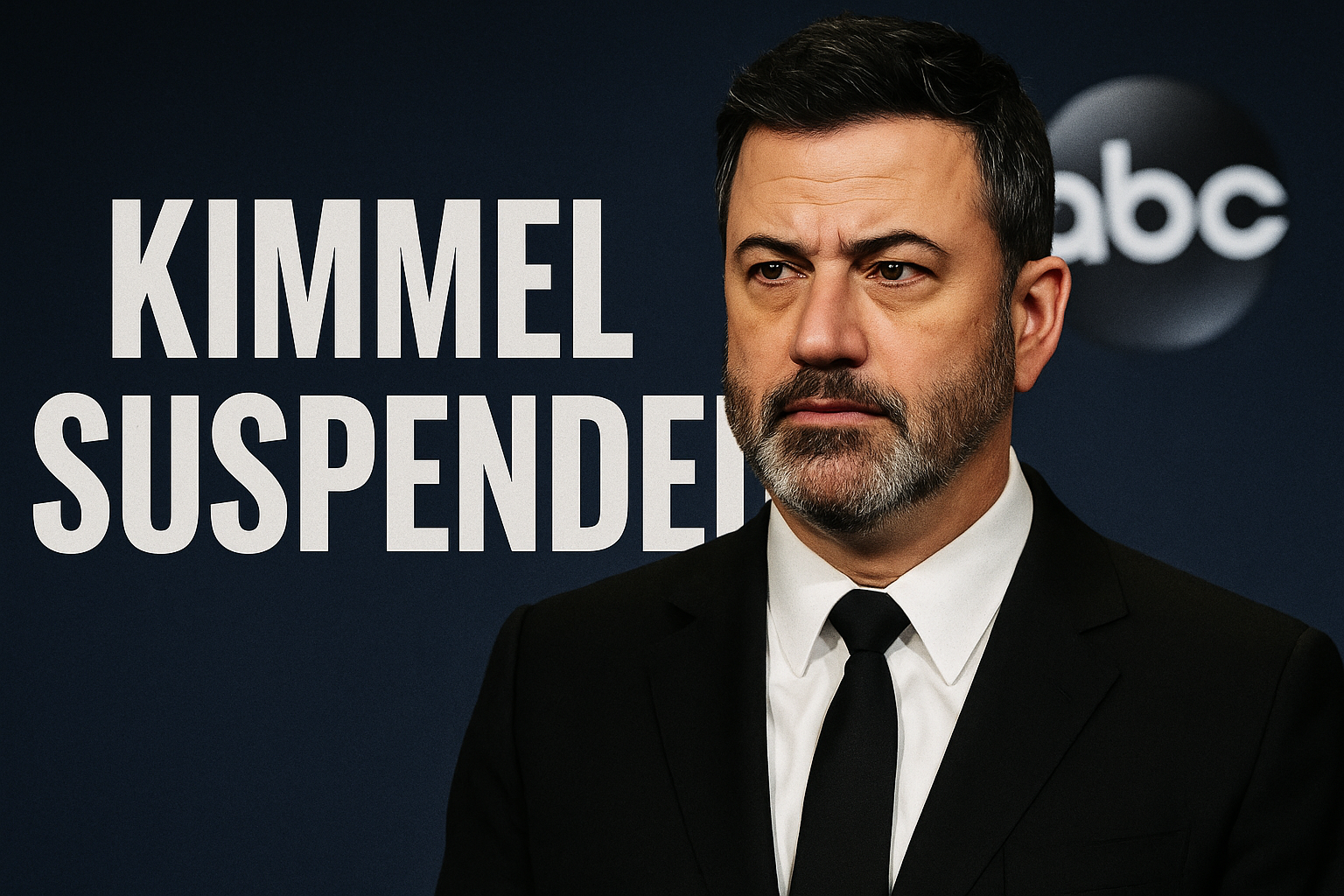Kimmel Crosses the Line: ABC Suspends Late-Night Host After Irresponsible Remarks About Charlie Kirk
When Jimmy Kimmel opened his monologue Monday night with a smirk and a jab, America expected comedy. What they got was something else entirely: a series of falsehoods, insinuations, and tone-deaf commentary delivered less than 72 hours after the tragic murder of Turning Point USA founder Charlie Kirk. As news spread, so did the backlash. By Tuesday evening, ABC had indefinitely suspended Jimmy Kimmel Live!, a move that—while shocking to some—felt justified to millions who watched in disbelief as a man’s life was reduced to political fodder.
Kirk, just 31, was gunned down in Arizona while greeting supporters outside a university event. The suspected shooter, whose online history is still being reviewed by federal investigators, left behind a trail of disturbing posts attacking Christianity, conservatism, and institutions of faith. Despite this, Kimmel used his platform to float the opposite—that the right was somehow trying to rewrite the story to deflect blame, even suggesting without evidence that the shooter was conservative himself. It was a claim that not only contradicted law enforcement statements but reeked of a calculated narrative meant to discredit conservative mourning and redirect public sentiment.
The outrage was immediate. Social media lit up with criticism from journalists, lawmakers, and everyday Americans. FCC Chairman Brendan Carr issued a rare public rebuke of a network host, calling the remarks "beyond the pale" and hinting at regulatory scrutiny should ABC fail to respond. Nexstar Media Group, which operates a third of the ABC affiliate network, announced it would no longer air the show. And within hours, ABC released a statement confirming that Jimmy Kimmel Live! was being pre-empted "indefinitely."
This wasn’t a matter of edgy humor. It was a matter of public trust. When comedy ceases to be grounded in reality and becomes a megaphone for misinformation, especially in the wake of a national tragedy, it enters dangerous territory. What Kimmel delivered that night wasn’t just offensive—it was intellectually dishonest. And for the millions grieving Charlie Kirk, it felt like salt in the wound.
Charlie Kirk wasn’t just another pundit. He was, to many young Americans, a rising symbol of courage in a culture increasingly hostile to traditional values. He advocated for the Constitution, for free markets, for faith, and for family. His work with Turning Point USA mobilized a generation of high school and college students who felt politically orphaned by modern academia. Whether one agreed with him or not, his influence was undeniable. And his murder, a cold-blooded assassination, shocked the nation. That a late-night host would seize that moment to play politics feels less like entertainment and more like dereliction.
For years, Kimmel has operated under the guise of satire, cloaking political commentary in stand-up delivery. But as late-night television drifted further left, it lost something critical—balance. Viewers on the right stopped tuning in. Those in the center grew weary. And moments like this serve as a wake-up call that the line between commentary and propaganda has long since blurred. The response from ABC signals, perhaps for the first time in years, that even the entertainment establishment has limits.
The idea that this suspension is an act of censorship doesn’t hold water. Kimmel was not silenced by a mob or censored by the state. He was held accountable by the very audience he chose to provoke—and by a corporation that, despite its leanings, recognized the cost of inaction. There’s a difference between freedom of speech and freedom from consequence. Kimmel is still free to say what he wants—but not without cost, especially when truth is the casualty.
Many on the left rushed to frame Kimmel as a victim of the so-called culture war, painting him as a martyr for free expression. But that misses the point. This isn’t about ideology. It’s about truth, timing, and basic human decency. A man was murdered. His family is grieving. His followers are in mourning. The nation is processing a high-profile act of political violence. And instead of respecting that moment, Kimmel chose to inject confusion and sarcasm into an already raw national wound.
There was a time when comedians like Johnny Carson walked a finer line, understanding that their job was to unite Americans in laughter—not divide them with disdain. Today, that legacy feels all but forgotten. And while Kimmel is far from the only one guilty of this shift, he now stands as the most high-profile example of where that trajectory leads.
It’s hard to imagine a reversal at this point. While ABC hasn’t officially canceled the show, insiders suggest that discussions are ongoing about the brand damage caused and the future of the network’s late-night strategy. Some are calling for Kimmel to issue a public apology. Others say the show’s legacy is irreparably stained.
And what of the millions who have felt alienated by Hollywood’s growing disconnect from mainstream America? To them, this moment is more than justice—it’s validation. Validation that their voices matter. That their grief is real. And that the media doesn’t get to control the narrative unchallenged.
As we move forward, the real question isn’t whether Kimmel will return. It’s whether the media class will finally understand what it missed: that truth matters more than applause lines, and that no one—not even a comedian—is above accountability when the stakes are this high.
Charlie Kirk deserved better. His family deserved better. And the country, still reeling from violence and division, deserved honesty from those entrusted with a platform. ABC made the right call. And Jimmy Kimmel, for all his fame, is now a cautionary tale in a nation waking up to the price of careless words.
%20(4).png)





.png)
.png)
.png)
.png)
